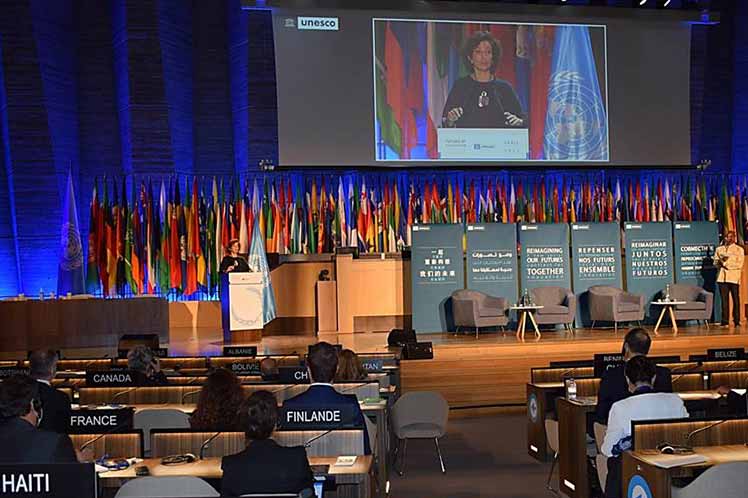Azoulay considered that in today’s world “parity is far from being a reality” and recalled that, “even before the (Covid-19) pandemic, it was estimated that it would take a century to close the gender gap”, for what he asked to remedy this situation.
According to data from the United Nations Educational, Scientific and Cultural Organization (Unesco) worldwide, the salary of women is only equivalent to 77 percent of that of men.
Furthermore, only one in three researchers is female.
They reportedly own less than 20 per cent of the land, while accounting for 80 per cent of the people displaced by climate change.
Despite these figures, Azoulay hoped to be at the gates of a new era “because today’s women lead global movements for change and address global issues such as climate justice, press freedom and access to scientific progress”.
She added that “without asking permission, they sit at the table.”
On the occasion of this day, the head of UNESCO symbolically cited some members of this new generation of women who “show their courage by speaking out, inspiring others and mobilizing their peers with a view to a more sustainable future”.
He assured that UNESCO “will continue to empower girls and women like these, in accordance with our global priority Gender Equality”, which means “safeguarding their right to education, ensuring their opinions are taken into account and fighting against gender-based violence”.
Azoulay cited concrete programs carried out in each of these areas.
ef/gas/acm










